30 Memoirs and Nonfiction Books for Your Reading Bucket List
If you’re working on building a list of books you want to read in your lifetime, here is a list of 30 memoirs and nonfiction books to add to your reading bucket list.
This post may include affiliate links. That means if you click and make a purchase, I may earn a small commission. Please see Disclosures for more information.
I’m back with more reading bucket list recommendations! This week’s recommendations for your bucket list are must-read memoirs and great nonfiction books.
Last week, I kicked off this series with 30 contemporary fiction novels to add to your reading bucket list. For more lists in this series, check out the full list of links at the end of this post.
What’s a Reading Bucket List?
In short, a reading bucket list is a manageable list of books you want to read in your life. Mine has only 50 books on it.
Creating this list helps guide you to meet your reading goals, without overwhelming you or leaving you feeling deprived from newer or more “fun” books you might want to read.
Here is more guidance on how to create a reading bucket list that you’ll actually finish.
Reading More Nonfiction
Nonfiction books are not typically the first reads that I reach for, but that doesn’t mean I don’t want to read them. There have been some amazing, riveting memoirs and nonfiction books released in the last few years.
Nonfiction November is a great time to get in more nonfiction reads, but I’ve also been trying to squeeze in a few others throughout the year.
If you’re also looking to add more memoirs or nonfiction to your reading, some of these might be good additions to your own lifetime reading list.
The list includes a variety of types of books, from personal memoirs to historical explorations, so if you don’t read much nonfiction now, these ideas might get you started.
Don’t be afraid to stop reading books that aren’t working for you. Reading time is precious, and you should use it to read books you love–not books you think you *should* finish.
As with the previous list, when I haven’t yet read a book or if I don’t have a good summary/review of my own, I’ve included the publisher’s summary in italics.
Print the Lists
Want to print this and other book lists? Subscribe to my email newsletter and you’ll get to access my library of downloadable book lists, as well as a template for creating your own reading bucket list.
You’ll also receive regular updates on what’s new on the blog.
30 Memoirs and Nonfiction Books for Your Reading Bucket List
Unbroken: A World War II Story of Survival, Resilience, and Redemption
This tale of Louis Zamperini’s trials during World War II is so harrowing, you’ll have to remind yourself that it’s not fiction—because you won’t believe that one person could survive all that he did: a plane crash, months at sea on a raft, shark encounters…and that’s just the start. This book was hard to read, but also hard to put down. It stuck with me long after I finished it and provided perspective when day-to-day concerns threatened to overwhelm. It’s worth the reread for that reason alone.
Behind the Beautiful Forevers: Life, Death, and Hope in a Mumbai Undercity
Pulitzer Prize winner Katherine Boo immersed herself in a slum of Mumbai to tell the stories of the people who live there. Annawadi sits ironically in the shadow of a billboard reading “The Beautiful Forevers” and is pressed on all sides by the growth of the city that is leaving it behind. Boo herself is not part of the story, and she doesn’t need to be. The lives, hopes, and hurts of the families are richly painted and bring home the individual struggles and systemic obstacles that stand in the way of people rising above the inequality into which they are born. For those of us in the U.S., the stories of struggling families in this faraway country feel closer to home than ever in today’s political climate and stratified economy.
What Is the What
The story of Achak Deng, one of the “Lost Boys of Sudan,” who as a child was separated from his family during the Second Sudanese Civil War. He encounters danger, violence, disappointment, and surprising moments of humor and humanity as he flees to unknown places in search of safety and a life. This book couldn’t truly be called non-fiction—Dave Eggers himself describes it as “fictionalized autobiography” because of lapses in Deng’s memory and imagined conversations. Eggers writes in Deng’s voice to tell of the horrors faced by these children in Sudan and the difficulties they face as immigrants in the United States.
The Immortal Life of Henrietta Lacks
In the 1950s, Henrietta Lacks was a poor black woman in her thirties who died of cancer. Doctors at Johns Hopkins University, where she was treated, took some of her unique cells without permission and used them for research. Those cells then became the basis for important medical advances, and they are still sold today for medical research—yet Lacks’s family has never received any compensation. Heavy on science, but interesting to all readers because of the human element, Rebecca Skloot follows the path of the cells, the research, and Lacks’s family, while discussing important questions of ethics and morality in science and medicine.
On Writing: A Memoir of the Craft
I have never read any Stephen King before because I’m a big fat wimp and I know I’d have nightmares and be afraid to go in my basement (anyone else still give those wide-open storm sewers the side-eye after that clown appeared in It? And I only watched about five minutes of that movie.). But this book is pretty much required reading for anyone who wants to write. King is a prolific writer who knows how to tell a story, and he has great lessons to share with other storytellers.
The Glass Castle
I’ve seen this memoir recommended by readers for years, but it was actually the movie trailer that prompted me to pick it up. My impression was that the book was dark and heartbreaking, while the trailer gave the impression that it was about a carefree, inspiring family. I hadn’t yet seen the movie when I read this, but I did find the book heartbreaking. Walls seems to cling to the uplifting moments of her childhood, when her father in particular infused their family with a reckless sense of freedom and privilege in their free-spirited rootlessness. While there are appealing elements of his spirit, ultimately the parents’ selfishness and neglect is breathtaking, but the resourcefulness of the children is inspiring. (And thankfully, the movie trailer was somewhat misleading. It did stay pretty true to the spirit of the book.)
The Gratitude Diaries: How a Year Looking on the Bright Side Can Transform Your Life
Janice Kaplan spent a year focusing on gratitude in her own life and talking to experts about the ways that gratitude affects our lives. In all areas of life–family, career, health, and even grief–gratitude has a measurable effect on our well-being, our relationships, and our overall happiness. Daily conscious efforts to be grateful can actually change the neural connections in our brains and retrain the ways that we automatically respond to negative situations. This book made me more conscious of my own responses and the ways that I can build gratitude into my own thoughts and actions; read my full review and thoughts on moving through life with more gratitude.
Hunger: A Memoir of (My) Body
Roxane Gay’s life was changed forever at 12. The victim of a gang rape, Gay began building a fortress around herself, attempting to both keep herself safe and regain control. Instead, she found herself in what she calls an “unruly body,” one that, in its obesity, provides some measure of safety while also shrinking her world in various ways. At the same time, she asserts herself as fully human in a world that is determined to dehumanize her: highly intelligent, fully able to love and be loved, and in no way ignorant of the health and nutrition facts people throw at her. Gay is brutally honest and raw in this memoir about her struggles to understand and care for herself–weight, past, and all.
Tiny Beautiful Things
A book of “advice on love and life” is not the kind of thing I would normally read, but the raves piqued my curiosity. Strayed, known as “Sugar,” the anonymous advice columnist for The Rumpus, gives the kind of advice we all hope to get from our best friends, or our therapists. She doesn’t always have the answers, but she does have perspective, and she is searingly honest in her analysis of some of life’s biggest questions. At the heart of all of her columns is one life essential: love.
Seabiscuit: An American Legend
I was blown away by Hillenbrand’s Unbroken–the storytelling, the research, the detail–and after resisting Seabiscuit despite all the raves, I finally gave in and read it, hoping for a similar experience. I’m sorry to say that I didn’t love it. I’m still impressed with Hillenbrand, but I wasn’t able to overcome my overall disinterest in horse racing.
However, many other readers adore this book and list it among their favorites. While it wasn’t my favorite, it’s still worth a try if you’re looking for great nonfiction storytelling.
Just Mercy: A Story of Justice and Redemption
Bryan Stevenson was a young lawyer when he founded the Equal Justice Initiative, a legal practice dedicated to defending those most desperate and in need: the poor, the wrongly condemned, and women and children trapped in the farthest reaches of our criminal justice system. One of his first cases was that of Walter McMillian, a young man who was sentenced to die for a notorious murder he insisted he didn’t commit. The case drew Bryan into a tangle of conspiracy, political machination, and legal brinksmanship—and transformed his understanding of mercy and justice forever.
Educated: A Memoir
As a young child, Tara Westover’s upbringing seemed almost charming and old fashioned. Living on a mountain in Idaho, the family strived for self-sufficiency based in faith and closeness to one another. As Tara grew up, however, she realized that their lives were driven by paranoid survivalism, religious extremism, abuse, and possibly mental illness.
Tara’s memoir traces the path from her cloistered upbringing–during which she never set foot in school–to her eventual education at BYU, Cambridge, and Harvard.
But more important than her formal educational path is her move toward awareness and a sense of self that wasn’t allowed in her mountaintop life. Educated explores her attempts to reconcile this new sense of self and the boundaries she learns to set with the love and longing she feels for her family.
An incredible read both for the excellent writing and the author’s thoughtful, unblinking, nuanced look at herself and her own life.
Daring to Drive: A Saudi Woman’s Awakening
A ferociously intimate memoir by a devout woman from a modest family in Saudi Arabia who became the unexpected leader of a courageous movement to support women’s right to drive. Writing on the cusp of history, Manal offers a rare glimpse into the lives of women in Saudi Arabia today. Her memoir is a remarkable celebration of resilience in the face of tyranny, the extraordinary power of education and female solidarity, and the difficulties, absurdities, and joys of making your voice heard.
Born a Crime: Stories from a South African Childhood
Trevor Noah’s unlikely path from apartheid South Africa to the desk of The Daily Show began with a criminal act: his birth. Trevor was born to a white Swiss father and a black Xhosa mother at a time when such a union was punishable by five years in prison. Born a Crime is the story of a mischievous young boy who grows into a restless young man as he struggles to find himself in a world where he was never supposed to exist. It is also the story of that young man’s relationship with his fearless, rebellious, and fervently religious mother—his teammate, a woman determined to save her son from the cycle of poverty, violence, and abuse that would ultimately threaten her own life.
Night
Night is Elie Wiesel’s masterpiece, a candid, horrific, and deeply poignant autobiographical account of his survival as a teenager in the Nazi death camps. Night offers much more than a litany of the daily terrors, everyday perversions, and rampant sadism at Auschwitz and Buchenwald; it also eloquently addresses many of the philosophical as well as personal questions implicit in any serious consideration of what the Holocaust was, what it meant, and what its legacy is and will be.
In Cold Blood
On November 15, 1959, in the small town of Holcomb, Kansas, four members of the Clutter family were savagely murdered by blasts from a shotgun held a few inches from their faces. There was no apparent motive for the crime, and there were almost no clues.
As Truman Capote reconstructs the murder and the investigation that led to the capture, trial, and execution of the killers, he generates both mesmerizing suspense and astonishing empathy. In Cold Blood is a work that transcends its moment, yielding poignant insights into the nature of American violence.
Pilgrim at Tinker Creek
Pilgrim at Tinker Creek is the story of a dramatic year in Virginia’s Roanoke Valley. Annie Dillard sets out to see what she can see. What she sees are astonishing incidents of “beauty tangled in a rapture with violence.”
Her personal narrative highlights one year’s exploration on foot in the Virginia region through which Tinker Creek runs. In the summer, Dillard stalks muskrats in the creek and contemplates wave mechanics; in the fall, she watches a monarch butterfly migration and dreams of Arctic caribou. She tries to con a coot; she collects pond water and examines it under a microscope. She unties a snake skin, witnesses a flood, and plays King of the Meadow with a field of grasshoppers. The result is an exhilarating tale of nature and its seasons.
The Boys of My Youth
Jo Ann Beard beautifully evokes her childhood in the early ’60s, a time in which mothers continued to smoke right up to labor, one’s own scabs were deeply interesting, and Barbie dolls seemed to get naked of their own volition, knowing that Ken would be the one to get in trouble if they were caught. Beard’s memories of the next 30 years are no less sharp and wry, powered by antic melancholy, perfect juxtapositions, and “the push of love.” When she was little, “the words of grown-ups rarely made sense,” and even now, with the exception of her best friend and a few colleagues, not much seems to have changed.
Prairie Fires: The American Dreams of Laura Ingalls Wilder
I was a huge fan of everything Little House when I was a kid. I read the books over and over, and I watched the television series. This past year, I’ve been diving back into that world. I’ve been reading the books aloud with my daughter, but I’ve also been taking a more nuanced look at the world presented by Laura Ingalls Wilder. First, I read (and loved) Caroline: Little House, Revisited (Ma’s fictional perspective on the Little House on the Prairie story), and then I dove into the true story with this detailed biography.
There are parts of Prairie Fires that read like a history textbook; the book is long, and it can get quite dry. It presents the broader historical context in which the Ingalls and Wilder families lived, and that included things like farm loans, railroads, crop pricing, and politics.
At the same time, when the book circles back to the families, it makes clear how these things affected their lives and decisions. As a reader of the books, it was gratifying to learn that many of the events actually happened–but also interesting as an adult to learn of the omissions, both of events and of character flaws. Most illuminating was the incessant devastation that occurred through their lives: fires, grasshoppers, storms, illness–and ongoing poverty that resulted. While these things were present in the books, the reality of them is a contrast to the idyllic lives we remember.
The later years of Wilder’s life were also fascinating–especially her relationship with her volatile daughter, Rose. Their partnership brought the books we love to life, but they would have been quite different without both Laura’s measured approach and Rose’s editing talent and flair for the dramatic (inserted sparingly, thanks to her mother’s reserve). Rose herself is an interesting character, and there were moments when the author seemed to question her sanity. Laura’s husband, Almanzo, unfortunately, is not a strong presence. The author drew heavily from the letters and writing of the women, and he was not a writer.
While I enjoyed this biography, because of the length and level of detail, I would only recommend this to other avid fans of the Little House books.
When Breath Becomes Air
At the age of thirty-six, on the verge of completing a decade’s worth of training as a neurosurgeon, Paul Kalanithi was diagnosed with stage IV lung cancer. One day he was a doctor treating the dying, and the next he was a patient struggling to live. And just like that, the future he and his wife had imagined evaporated. When Breath Becomes Air chronicles Kalanithi’s transformation from a naïve medical student “possessed,” as he wrote, “by the question of what, given that all organisms die, makes a virtuous and meaningful life” into a neurosurgeon at Stanford working in the brain, the most critical place for human identity, and finally into a patient and new father confronting his own mortality.
I Am Malala: The Girl Who Stood Up for Education and Was Shot by the Taliban
When the Taliban took control of the Swat Valley in Pakistan, one girl spoke out. Malala Yousafzai refused to be silenced and fought for her right to an education. When she was fifteen, she almost paid the ultimate price. She was shot in the head at point-blank range while riding the bus home from school, and few expected her to survive. I AM MALALA is the remarkable tale of a family uprooted by global terrorism, of the fight for girls’ education, of a father who, himself a school owner, championed and encouraged his daughter to write and attend school, and of brave parents who have a fierce love for their daughter in a society that prizes sons.
Truth & Beauty: A Friendship
Truth & Beauty: A Friendship is the story of the two-decade friendship between author Ann Patchett and the late poet and author Lucy Grealy. The two women met in college and cemented their friendship in graduate school and the years that followed, as both pursued writing careers. Grealy, who in childhood battled cancer that left her without part of her lower jaw, endured ongoing health difficulties and reconstructive surgeries.
Grealy was a needy, all-consuming friend–talented, tortured, and plagued by both addiction and her need for love, even as love surrounded her. Patchett, for her part, longed to be a part of Grealy’s inner circle long before she ever was, and she basked in Lucy’s need for her, as well as their shared goals and talent. The two moved toward success together, and the journey must have felt magical and pre-destined, if not always healthy. As always, I love Patchett’s writing, and listening to her narrate was a pleasure.
I Know Why the Caged Bird Sings
Sent by their mother to live with their devout, self-sufficient grandmother in a small Southern town, Maya and her brother, Bailey, endure the ache of abandonment and the prejudice of the local “powhitetrash.” At eight years old and back at her mother’s side in St. Louis, Maya is attacked by a man many times her age—and has to live with the consequences for a lifetime. Years later, in San Francisco, Maya learns that love for herself, the kindness of others, her own strong spirit, and the ideas of great authors (“I met and fell in love with William Shakespeare”) will allow her to be free instead of imprisoned.
A Long Way Gone: Memoirs of a Boy Soldier
Ishmael Beah was a regular 12-year-old boy in Sierra Leone when the war came. He went to school, hung out with friends, and loved to dance and rap in local talent shows. All of that was lost in an instant as the rebels rampaged through villages, killing everyone they found. He found himself on the run. After surviving for months, at times with a small group of boys, at times completely alone, starvation and desperation brought him to a village that seemed safe. Instead, he was pressed into service by the government army, drugged, and trained as a killer. Beah tells his story in a way that is both matter-of-fact and fully cognizant of the innocence that was stolen from him and so many other children. A word of warning: this was so hard to read–at times I struggled to continue, knowing that things were only going to get worse. That it’s a true story, for Beah and for thousands of other children, made it feel important to finish.
Between the World and Me
In this letter to his son, Ta-Nehisi Coates discusses how the United States was built on and by the bodies of black people, and how those bodies continue to be endangered, used, and abused to maintain a system that thrives on their subjugation. Coates recalls recent incidents of police brutality as well as the long history of race and its importance to those in power–“the people who believe themselves to be white.” Powerful, emotional, and filled with brutal, uncomfortable truths that demand to be known and acknowledged.
Guns, Germs, and Steel: The Fates of Human Societies
In this “artful, informative, and delightful” (William H. McNeill, New York Review of Books) book, Jared Diamond convincingly argues that geographical and environmental factors shaped the modern world. Societies that had a head start in food production advanced beyond the hunter-gatherer stage, and then developed writing, technology, government, and organized religion—as well as nasty germs and potent weapons of war—and adventured on sea and land to conquer and decimate preliterate cultures. A major advance in our understanding of human societies, Guns, Germs, and Steel chronicles the way that the modern world came to be and stunningly dismantles racially based theories of human history.
Zeitoun
As Hurricane Katrina headed toward New Orleans, Abdulrahman Zeitoun never considered leaving. He was used to riding out the storm and keeping watch over his painting business and the properties he and his wife, Kathy, owned. Kathy and the four kids would leave, eventually making their way to Arizona to stay with friends, but Zeitoun stayed. As everyone knows, New Orleans soon turned into a disaster area. Zeitoun was largely isolated from it, staying on the second floor and roof of his home at night and paddling through the nearby neighborhoods by day, feeding dogs and helping people who needed it.
He and a friend are in a home he owns, visiting a tenant, when heavily armed authorities burst in and arrest them all. Thus begins an imprisonment filled with indignities, no standard rights, and accusations of terrorism. It’s an insightful look into one of the only parts of the machine that seemed to run like clockwork during Katrina: arrests and imprisonment.
This book is especially interesting not just for its content, which paints Zeitoun as quirky but noble, but also for its aftermath. Since Katrina and the writing of this book, Zeitoun and Kathy divorced, and he was accused of trying to beat her with a tire iron and then with soliciting a hitman in prison to kill her. He was acquitted of both but later convicted of stalking her. He was recently freed from prison after a deportation order couldn’t be carried out because of the war in Syria.
It’s always interesting to look at the larger story outside of a book, to find out if there are other perspectives or if new events have occurred since the writing–particularly when a person in a nonfiction book is portrayed in a certain way. I believe that most of the story in Zeitoun is probably true, but I also believe that people can be nice to dogs, help out a few neighbors, and still do other horrible things.
The World Is Flat: A Brief History of the Twenty-First Century
“One mark of a great book is that it makes you see things in a new way, and Mr. Friedman certainly succeeds in that goal,” the Nobel laureate Joseph E. Stiglitz wrote in The New York Times reviewing The World Is Flat in 2005. In this new edition (3.0), Thomas L. Friedman includes fresh stories and insights to help us understand the flattening of the world. Weaving new information into his overall thesis, and answering the questions he has been most frequently asked by parents across the country, this third edition also includes two new chapters–on how to be a political activist and social entrepreneur in a flat world; and on the more troubling question of how to manage our reputations and privacy in a world where we are all becoming publishers and public figures.
A Circle of Quiet
This journal shares fruitful reflections on life and career prompted by the author’s visit to her personal place of retreat near her country home.
Hidden Figures
Set amid the civil rights movement, the never-before-told true story of NASA’s African-American female mathematicians who played a crucial role in America’s space program.
Before Neil Armstrong walked on the moon, a group of professionals worked as ‘Human Computers’, calculating the flight paths that would enable these historic achievements. Among these were a coterie of bright, talented African-American women. Segregated from their white counterparts, these ‘colored computers’ used pencil and paper to write the equations that would launch rockets, and astronauts, into space.
Great nonfiction books aren’t my specialty, so I’m hoping you’ll add your own recommendations in the comments! What are your must-read memoirs and nonfiction books?
Other posts in this series:
- 30 Middle Grade Books for Your Reading Bucket List
- 30 20th Century Classics Written by Women for your Reading Bucket List
- 30 Contemporary Fiction Novels for Your Reading Bucket List
- 30 Historical Fiction Novels for Your Reading Bucket List
- How to Create a Reading Bucket List that You’ll Actually Finish
- 50 Books on My Reading Bucket List

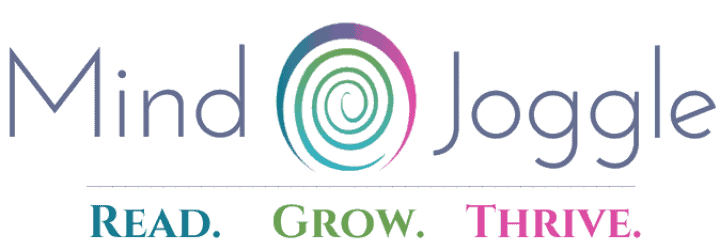











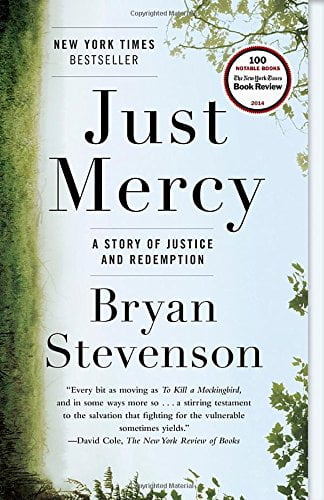










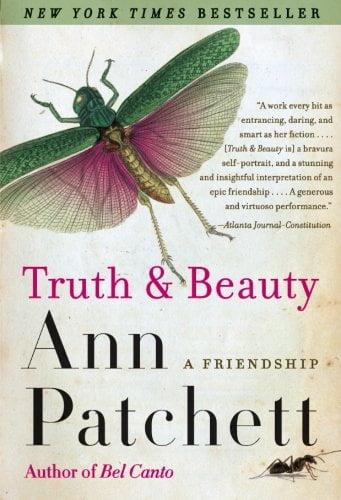









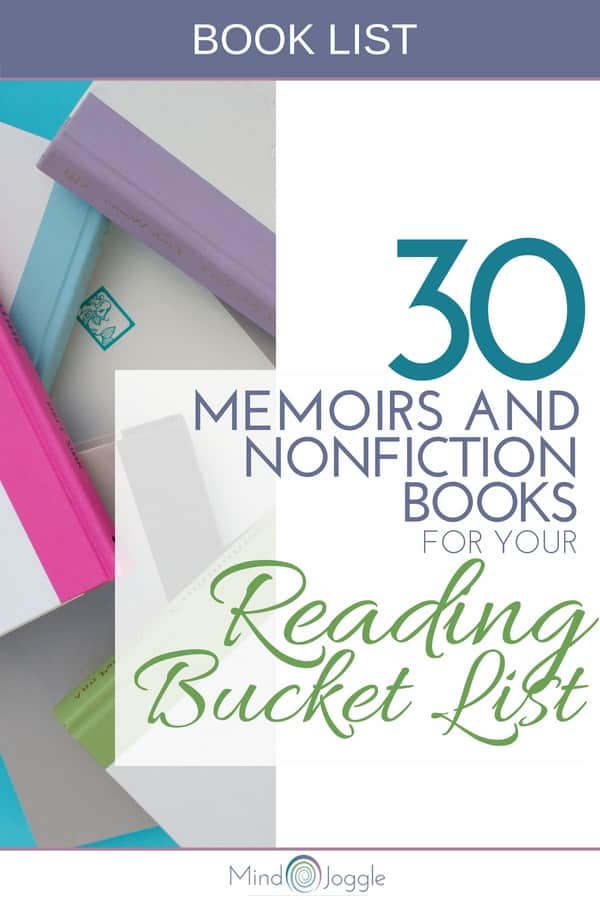
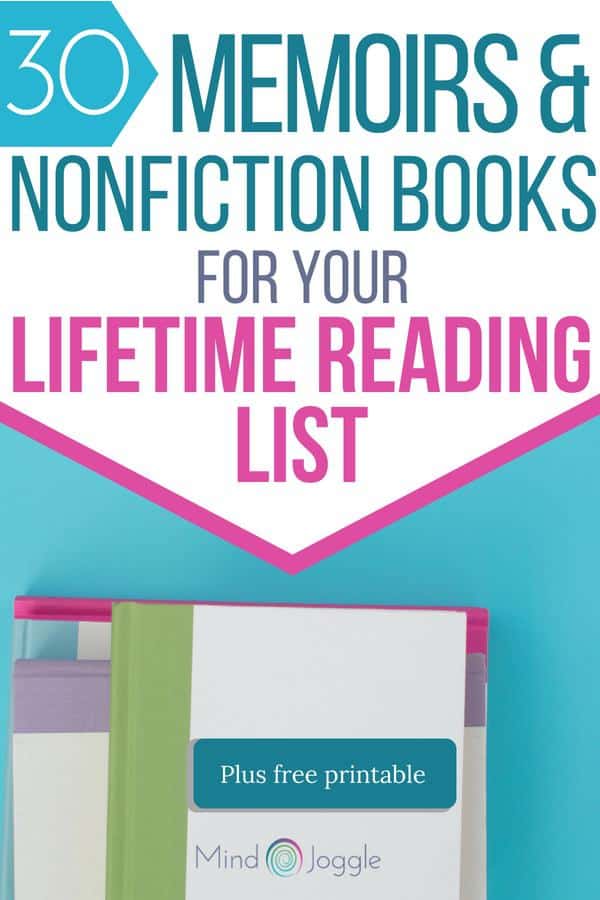
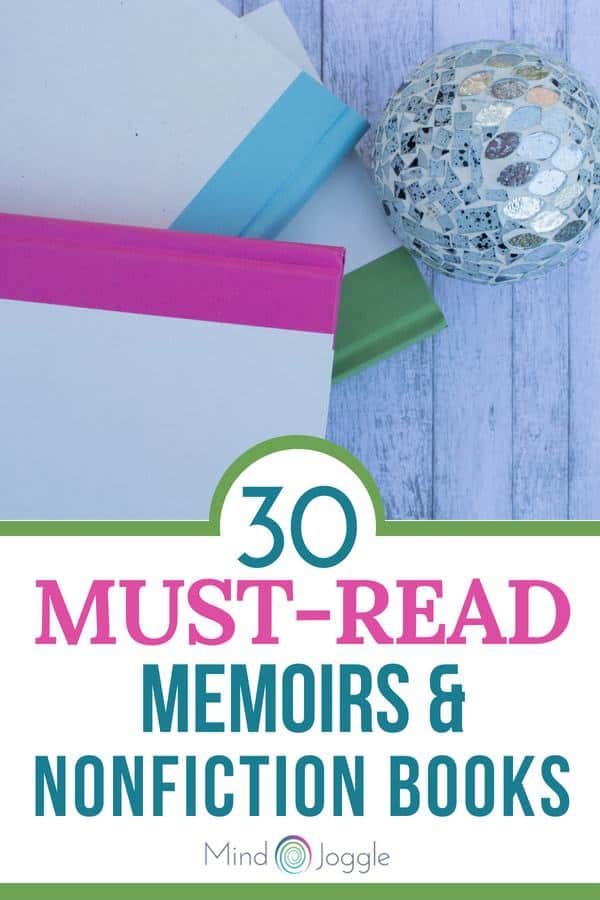
Oh man – On Writing is on my list too and also on my list for NN…of course it was also on my list for NN last year!
I’ve read a lot of these and their great ones for a bucket list! I’m due for a re-read of In Cold Blood!
I think I just made my Nonfiction November list–there are too many here that I haven’t read yet, but I want to!
I enjoyed On Writing. I can’t read most of Stephen King’s other work, but I admire how prolific he is.
On Writing blew me away! I’m a fan of his novels and honestly didn’t expect to enjoy his memoir/writing advice as much as I did. Unfortunately I didn’t like Hidden Figures nearly as much. The book was clunky and felt much longer than it actually was. Just watch the movie!
I just added Unbroken to a list of my favorite WWII books… it does read like a novel, which is pretty incredible for a biography.
You know I’m all over this list, especially as I also just published a post of my favorite memoirs (and asked for more to read, since I try to always be in the middle of one!). Thanks for a great list to choose from!
Love this list – thank you! I used to be a fiction-only lover. Now I’ve been so into memoirs and nonfiction, I can’t get my hands on enough!
Thank you! I hope you found a few to add to your list. Definitely check out Torrie’s list as well–she has some great memoir recommendations: https://www.toloveandtolearn.com/2018/05/11/12-compulsively-readable-memoirs-biographies/
What a great list! Definitely adding it to my Pinterest board for future reference. I think the book I haven’t yet read that looks most interesting is Zeitoun. That sounds like it would be a good read. I feel like I have come across a lot of really great memoirs lately. A lot of memoirs read like fiction and are really good. I’m currently reading Educated and I haven’t been able to put it down!
Thanks! I have Educated coming soon in my library holds. Looking forward to your thoughts! Zeitoun is actually on my shelf and I haven’t read it yet, but I’m eager to.
Damn, you’re so right, I *really* need to look at reading more non-fiction. In Cold Blood is a fantastic inclusion here – I read it for the first time just recently, and I deserve a good kick in the pants for having waited so long to finally get around to it. The others listed here are fantastic as well. I actually met Manal al-Sharif (very briefly) at the Sydney Writer’s Festival this year, and she effing SPARKLES – just a wonderful, warm, lovely human with such an incredible story.
Cheers for the recommendations – and happy reading! 🙂
I actually haven’t read either of them yet! In Cold Blood has been in the back of my mind for a long time but not something I ever prioritized–I probably should. And hearing about your experience meeting al-Sharif makes me even more curious about her story. She sounds amazing!
Awesome list! I just got The Immortal Life of Henrietta Lacks and I’m really looking forward to reading it. I also added Hidden Figures is to my To Read list. Thanks!!
Great list…I need to look at a few of them. I would “Hidden Valley Road” to the list!
The Glass Castle was such a good book. I cried happy tears and sad ones but I was a better person for having lived her story with her. Great read. I love anything Jeanette Walls has done so far.